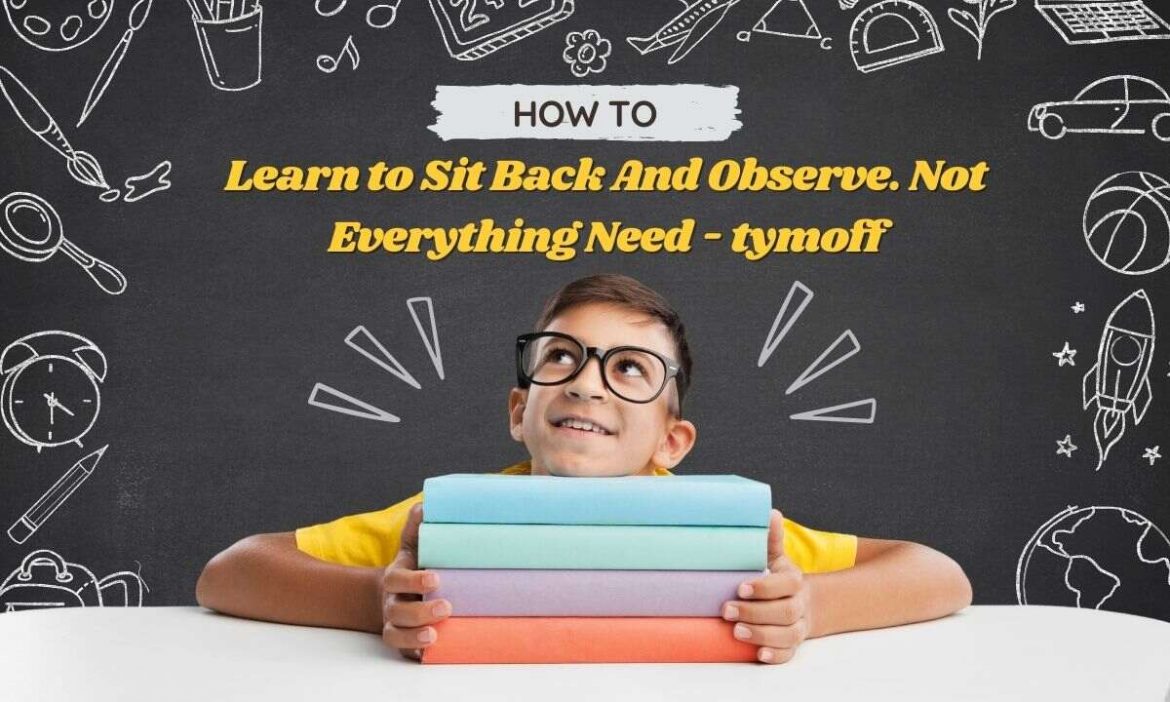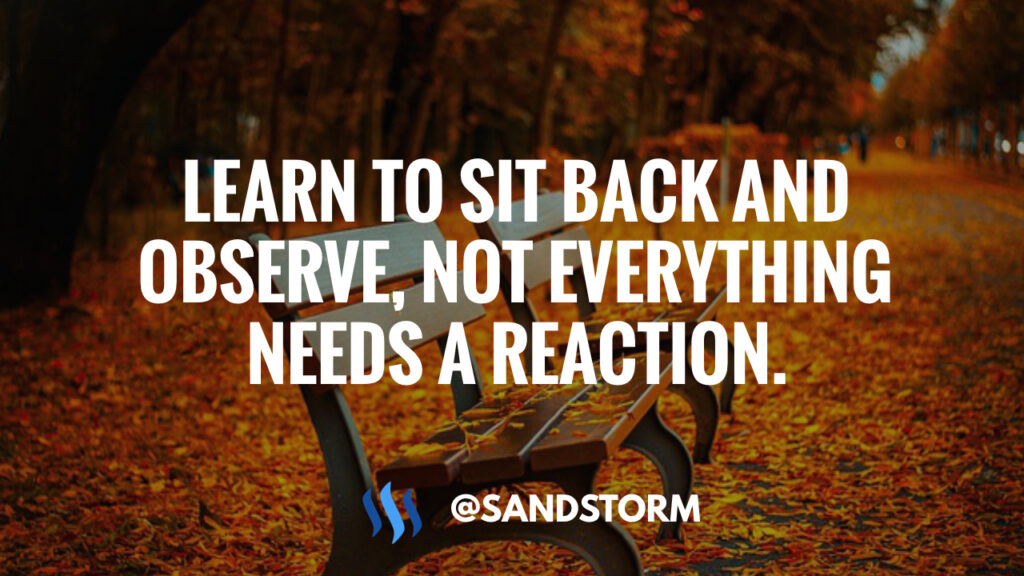Introduction
In today’s fast-paced world, the pressure to be constantly productive and active is ever-present. With the rise of technology, our lives have become more connected, and the boundaries between work and personal time have blurred. In this hustle and bustle, the concept of taking time off seems almost counterintuitive. However, there is wisdom in learning to sit back and observe, understanding that not everything requires a time off. This article explores the importance of mindful observation in our daily lives, highlighting the balance between being proactive and taking necessary breaks.
The Art of Mindful Observation
Mindful observation involves consciously stepping back from a situation, refraining from immediate reactions, and taking the time to understand the bigger picture. It’s about being present in the moment and observing without judgment. This practice allows individuals to gain clarity, make better decisions, and respond effectively to various situations. In essence, mindful observation is a powerful tool that can enhance both personal and professional aspects of life.
Recognizing the Need for Rest
While being proactive and productive is essential, it’s equally crucial to recognize the signs when a break is necessary. Constantly pushing ourselves without adequate rest can lead to burnout, stress, and a decline in overall well-being. Mindful observation helps us identify these signs, enabling us to take timely breaks and recharge our physical, mental, and emotional energy.

The Benefits of Taking Time Off
Contrary to the popular belief that constant activity leads to success, taking breaks has numerous benefits. It enhances creativity, improves problem-solving skills, and boosts overall productivity. Time off allows individuals to relax, rejuvenate, and gain new perspectives, which can be invaluable, especially in challenging situations. Moreover, it promotes better mental health, reduces stress levels, and fosters a positive outlook on life.
Finding Balance
Finding the right balance between staying active and taking breaks is essential for overall well-being. It’s crucial to understand that not every situation demands immediate action. Sometimes, observing a situation without hastily jumping in can provide valuable insights and prevent unnecessary mistakes. Learning to sit back and observe helps individuals strike a balance between being proactive and allowing situations to unfold naturally.
Cultivating Patience and Resilience
Practicing mindful observation requires patience. It teaches individuals to tolerate discomfort, uncertainty, and ambiguity without impulsively reacting. Developing patience is a valuable life skill that can enhance relationships, improve decision-making, and promote emotional stability. Moreover, it fosters resilience, enabling individuals to bounce back from setbacks and challenges with a calm and composed mind.

Enhancing Interpersonal Relationships
Mindful observation not only benefits individuals but also strengthens interpersonal relationships. By actively listening and observing others without judgment, we can gain a deeper understanding of their perspectives and emotions. This empathetic approach fosters stronger connections, trust, and mutual respect in both personal and professional relationships.
Conclusion
In a world that often glorifies constant activity and busyness, the art of learning to sit back and observe is a valuable skill to cultivate. By embracing mindful observation, individuals can navigate the complexities of life with grace and wisdom. Recognizing that not everything requires immediate action empowers us to find the right balance between being proactive and taking necessary breaks. So, let’s pause, breathe, and observe – for in the art of observation, we discover the profound beauty of living in the present moment.

